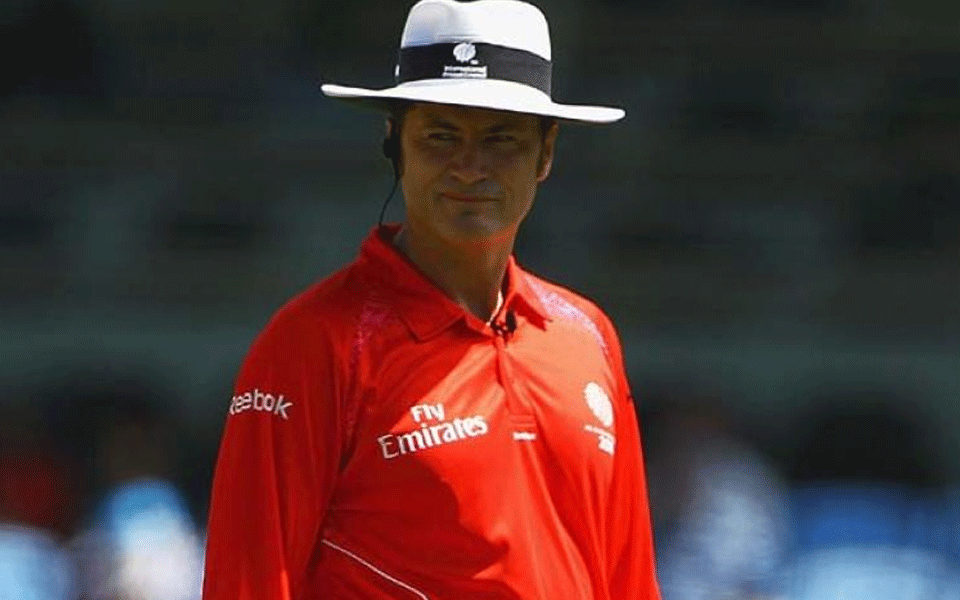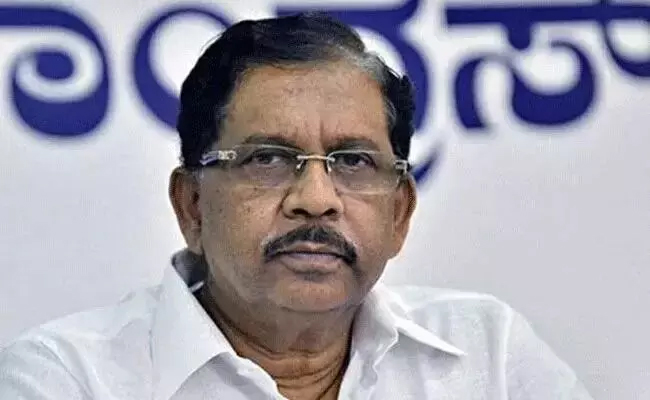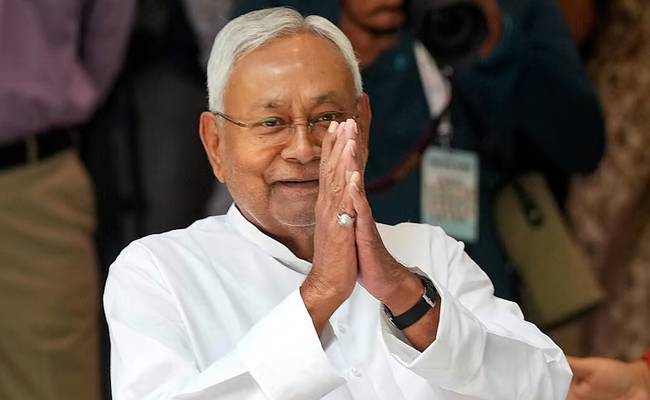London/Melbourne, Jul 15: Former international umpires Simon Taufel and K Hariharan Monday said officials standing in the World Cup final erred in awarding six runs, instead of five, to England for an overthrow, an observation that the ICC refused to comment on.
Luck smiled on England midway through the final over of their innings when a throw from New Zealand fielder Martin Guptill deflected off the bat of Stokes and ran to the boundary. England tied the match and the ensuing Super Over before winning on boundary count on Sunday.
Sri Lanka's Kumar Dharmasena and South African Marius Erasmus were the on-field umpires for the pulsating game in which England were chasing 242 in the regulation 50 overs.
"It's a clear mistake.. it's an error of judgment. They (England) should have been awarded five runs, not six," Taufel, a five-time ICC Umpire of the Year, told foxsports.com.au.
Echoing Taufel's view was former Indian umpire K Hariharan.
"Kumar Dharmasena killed the World Cup for New Zealand. It should have been five runs not six," he told PTI.
The ICC refused to make a comment with a spokesperson simply saying, "The umpires take decisions in the field of play with their interpretations of the rules and we don't comment on any decisions as a matter of policy."
Law 19.8 of the ICC rules, pertaining to 'Overthrow or wilful act of fielder', states: "If the boundary results from an overthrow or from the wilful act of a fielder, the runs scored shall be any runs for penalties awarded to either side, and the allowance for the boundary, and the runs completed by the batsmen, together with the run in progress if they had already crossed at the instant of the throw or act."
"...the umpires needed to check if at the point of throw the two batsmen had crossed each other or not. If we see that replay, when the throw came, the two batsmen had barely started the second run," Hariharan observed.
"That run can never be counted. It was duty of square leg umpire (Marius) Erasmus to consult the TV umpire and change the decision. Stokes shouldn't have been on strike next ball," he added.
Taufel, a highly-regarded ex-Australian umpire, is now a part of the MCC's laws sub-committee that makes the rules governing cricket.
The bizarre incident took place in the fourth ball of the final over at the Lord's.
TV replays showed Adil Rashid and Stokes had not yet crossed for their second run when Guptill released the ball from the deep.
However, on-field umpires Kumar Dharmasena and Marais Erasmus added six runs to England total following the incident -- four runs for the ball reaching the boundary plus two for running between the wickets by the batsmen.
Taufel also defended the officials.
"In the heat of what was going on, they thought there was a good chance the batsmen had crossed at the instant of the throw," Taufel said.
"Obviously TV replays showed otherwise. The difficulty you (umpires) have here is you've got to watch batsmen completing runs, then change focus and watch for the ball being picked up, and watch for the release (of the throw)," Taufel said.
"You also have to watch where the batsmen are at that exact moment."
He acknowledged the call "influenced the game" but added, "It's unfair on England, New Zealand and the umpires involved to say it decided the outcome".
Let the Truth be known. If you read VB and like VB, please be a VB Supporter and Help us deliver the Truth to one and all.
Colombo (AP): A US submarine sank an Iranian warship off the coast of Sri Lanka, and Sri Lanka's navy said Wednesday it recovered 87 bodies and rescued 32 people.
The Iranian vessel that was sunk in the Indian Ocean was the Islamic Republic's “prize ship,” US Defence Secretary Pete Hegseth said at a Pentagon news briefing. Hegseth said it was the first sinking of an enemy ship with a torpedo by the US since World War II.
Sri Lanka's Foreign Minister Vijitha Herath told Parliament that its navy received information that the IRIS Dena, with 180 people on board, was in distress and sinking. The island nation sent ships and air force planes on a rescue mission, he said.
Navy spokesman Commander Buddhika Sampath said by the time navy ships reached the location, there was no sign of the ship and “there were only some oil patches and life rafts. We found people floating on the water.”
He said the 32 people rescued were admitted to a hospital in the seaside town of Galle on the Sri Lanka's southern coast. The bodies recovered were being brought to land, he said.
Dr Anil Jasinghe, a top health ministry official, said one of those rescued is in critical condition, seven are receiving emergency treatment and others are being treated for minor injuries.
The IRIS Dena — one of Iran's newest warships — is a Moudge-class frigate that patrols in deep water for the Iranian navy. It is armed with heavy guns, surface-to-air missiles, anti-ship missiles and torpedoes. It also carries one helicopter.
The frigate was the centerpiece of a two-ship international tour in 2023 that included port calls in countries including South Africa and Brazil. It was accompanied by the support ship IRIS Makran, a converted oil tanker.
The US Treasury Department included both ships on a sanctions designation in February 2023 along with eight executives of an Iranian drone manufacturer that supplied the weapons to Russia for use against civilian targets in Ukraine.
At least 17 Iranian naval vessels have been sunk during the ongoing war, said US Adm Brad Cooper, who leads the American military's Central Command.
“We are also sinking the Iranian navy — the entire navy,” he said in a video message.





